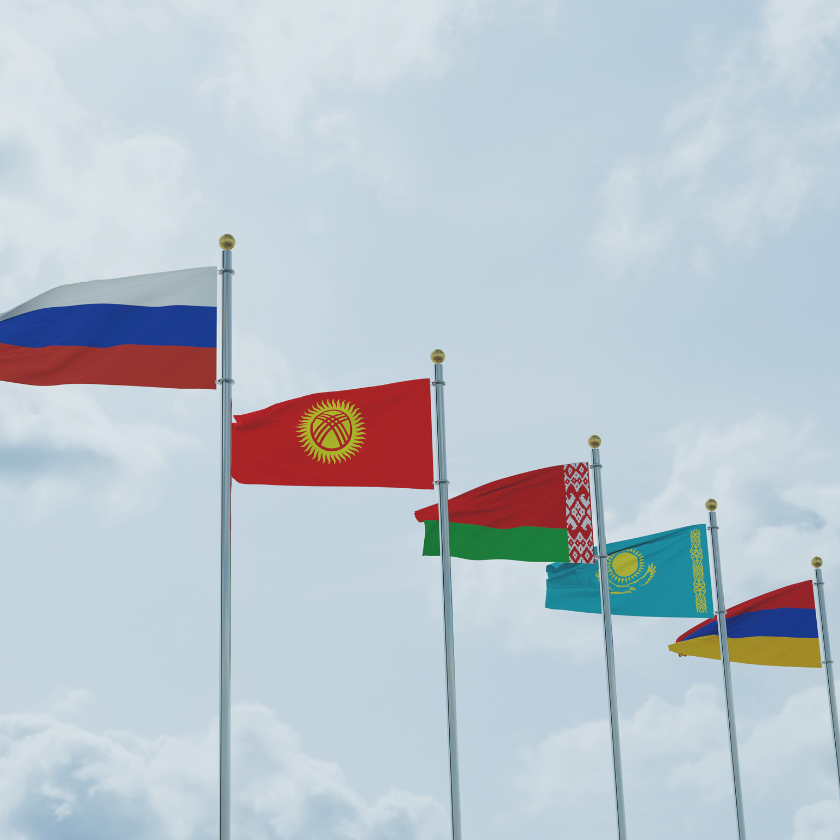Russia-Eurasia
Eurasia is undergoing profound changes. While the Soviet past has left a lasting imprint, Russia and the countries of Eastern Europe, Central Asia and the South Caucasus have their own trajectory.
Related Subjects


Russia and Turkey in the Caucasus: Moving Together to Preserve the Status Quo?
Since 2003 and after centuries of geopolitical competition, Russia and Turkey have drawn together in a new bilateral relationship. Expanding trade has been a major driving force behind this, but shared disillusionment with United States and European policies and attitudes, as well as increasing common ground on issues in the broader Black Sea region and further afield in the Middle East, have all played a role. At this juncture, the main impact of this new relationship is in Russia and Turkey's joint border area of the South Caucasus - with potentially negative implications for the fragile state of Georgia and for the European Union's new 'Neighborhood Policy' in the region.
UE Crisis: What Opportunities for Russia?
Despite the lack of any clear signs of proper 'Europeanization' or any desir to formally joint the European integration process (to became a full member of the European Union - EU), Russia has already become an insider in European political and economic life. Her interaction with the EU, both on a global level and in the sphere of private interests, depends on and is influenced by events within th EU. In this context, Russia can and must also fully consider tactical changes occurring withing decision-making mechanims, and the balance of power within the EU.
Germay's Policy on Russia: End of the Honeymoon?
Original title in German: 'Deutsche Russlandpolitik: Ende des 'Schmusekurses'?'
The developments in Putin's Russia away from democracy and the constitutional state have also placed Germany's policy on Russia under scrutiny. In the run-up to the election to the Bundestag on September 18th, representatives of the opposition parties CDU/CSU and FDP have thus made it clear that they no longer approve of the policy Chancellor Schröder has adopted with regard to Russia. The new EU member states in Eastern and Central Europe are accusing Germany of pursuing a Sonderweg compared with the rest of the EU and attempting to build a special relationship with Russia. This article addresses the question of whether this criticism is justified, and what is behind the 'strategic partnership' that Chancellor Schröder and President Putin have attested to time and again.
Double issue in partnership with the CERFA
Andrei Zagorski, 'Russia and Germany: Continuity and Changes', Russie.Nei.Visions, n.6(a), September 2005
Issue available in French, Russian and German.

Re-Writing Russia's Subsoil Law: from Sovereignty to Civil Law?
Russia is currently engaged in a major overhaul of legislation governing the subsoil.


Shared Neighbourhood or New Frontline? The Crossroads in Moldova
In 2005, the EU-Russia strategic dialogue stands troubled. Recent developments highlight the rising salience of the new shared neighbourhood - that is, in Ukraine, Moldova, Belarus and the South Caucasus - as the frontline between the enlarged EU and Russia. This paper examines the state of affairs in the declared 'strategic partnership', before turning to a discussion of the European Neighbourhood Policy. The example of Moldova is explored as a crossroads between divergent EU and Russian interests. In conclusion, the paper puts forward policy proposals for the EU to consider with regard to Moldova and the partnership with Russia.

Support independent French research
Ifri, a foundation recognized as being of public utility, relies largely on private donors – companies and individuals – to guarantee its sustainability and intellectual independence. Through their funding, donors help maintain the Institute's position among the world's leading think tanks. By benefiting from an internationally recognized network and expertise, donors refine their understanding of geopolitical risk and its consequences on global politics and the economy. In 2025, Ifri supports more than 80 French and foreign companies and organizations.








